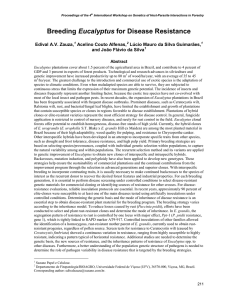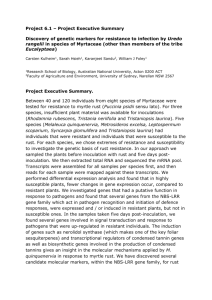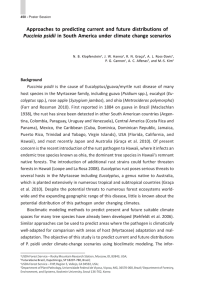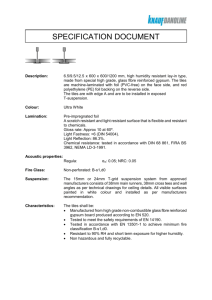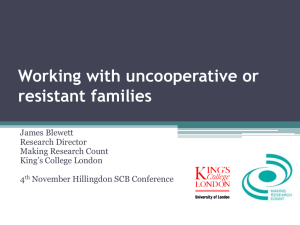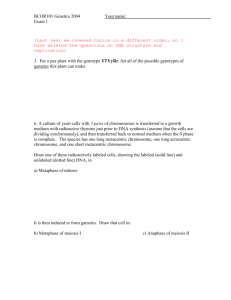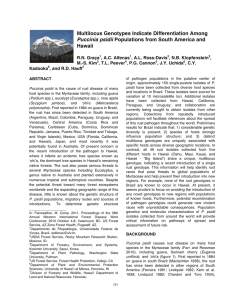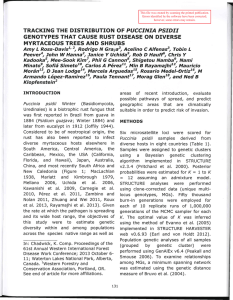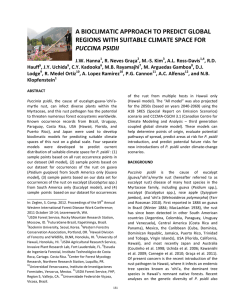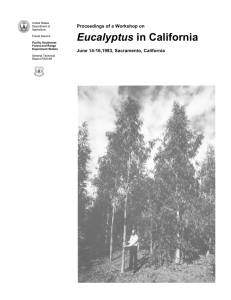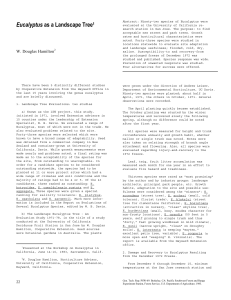Eucalyptus cloeziana Puccinia psidii Rafael F. Alfenas, Camila S. Freitas,
advertisement
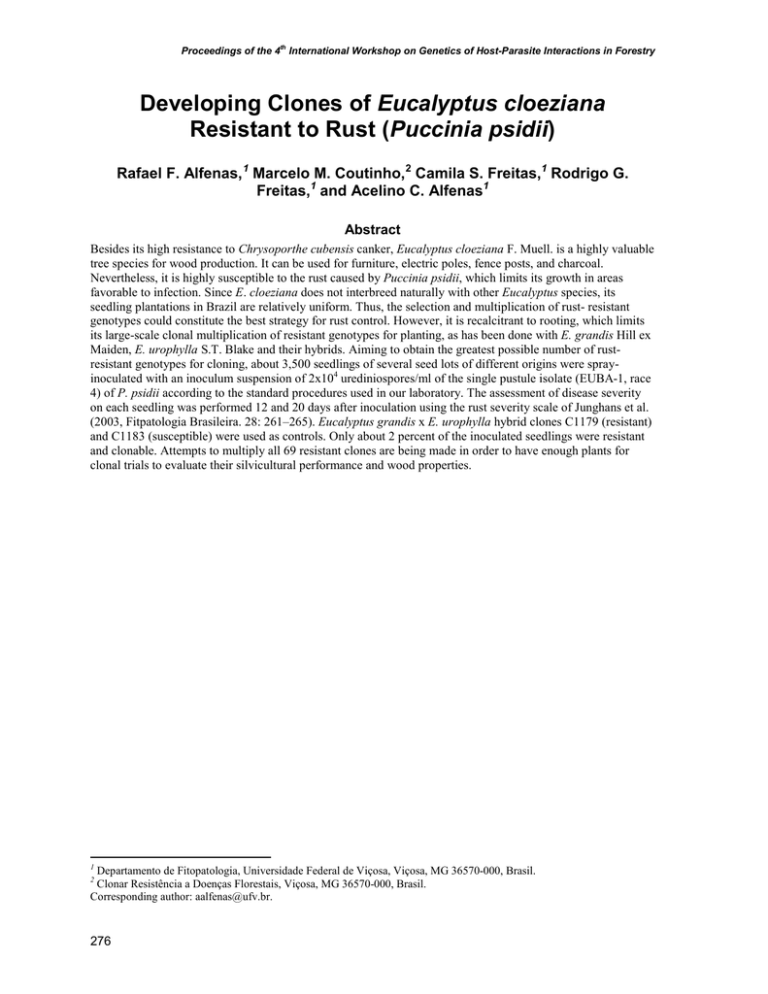
Proceedings of the 4th International Workshop on Genetics of Host-Parasite Interactions in Forestry Developing Clones of Eucalyptus cloeziana Resistant to Rust (Puccinia psidii) Rafael F. Alfenas, 1 Marcelo M. Coutinho, 2 Camila S. Freitas,1 Rodrigo G. Freitas,1 and Acelino C. Alfenas1 Abstract Besides its high resistance to Chrysoporthe cubensis canker, Eucalyptus cloeziana F. Muell. is a highly valuable tree species for wood production. It can be used for furniture, electric poles, fence posts, and charcoal. Nevertheless, it is highly susceptible to the rust caused by Puccinia psidii, which limits its growth in areas favorable to infection. Since E. cloeziana does not interbreed naturally with other Eucalyptus species, its seedling plantations in Brazil are relatively uniform. Thus, the selection and multiplication of rust- resistant genotypes could constitute the best strategy for rust control. However, it is recalcitrant to rooting, which limits its large-scale clonal multiplication of resistant genotypes for planting, as has been done with E. grandis Hill ex Maiden, E. urophylla S.T. Blake and their hybrids. Aiming to obtain the greatest possible number of rustresistant genotypes for cloning, about 3,500 seedlings of several seed lots of different origins were sprayinoculated with an inoculum suspension of 2x104 urediniospores/ml of the single pustule isolate (EUBA-1, race 4) of P. psidii according to the standard procedures used in our laboratory. The assessment of disease severity on each seedling was performed 12 and 20 days after inoculation using the rust severity scale of Junghans et al. (2003, Fitpatologia Brasileira. 28: 261–265). Eucalyptus grandis x E. urophylla hybrid clones C1179 (resistant) and C1183 (susceptible) were used as controls. Only about 2 percent of the inoculated seedlings were resistant and clonable. Attempts to multiply all 69 resistant clones are being made in order to have enough plants for clonal trials to evaluate their silvicultural performance and wood properties. 1 Departamento de Fitopatologia, Universidade Federal de Viçosa, Viçosa, MG 36570-000, Brasil. Clonar Resistência a Doenças Florestais, Viçosa, MG 36570-000, Brasil. Corresponding author: aalfenas@ufv.br. 2 276
